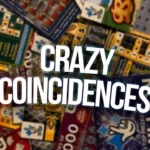When you search “Wealapa,” here’s what appears in the top pages:
- A site “Techywil” publishes “Wealapa Exposed: Safe Treasure or Total Risk?”, framing Wealapa as a platform offering free digital resources or access—while warning of malware, privacy risks, and legal trouble.
- Another blog, Businessine, describes “Wealapa” as a rising brand in holistic wellness, regenerative travel, and sustainable luxury retreats.
- A third blog claims “Wealapa focuses on balance, wellness, and mindful habits”, suggesting it is a lifestyle / wellness concept that users can incorporate into daily life.
These conflicting descriptions suggest Wealapa is an ambiguous entity—possibly a concept, a brand, or a site that aims to combine wellness branding with digital access to services or free resources. The “exposed / risk” tone also suggests some believe Wealapa has shady or suspicious operations.
Because these are promotional or commentary sources (not mainstream news or academic references), one must approach the claims cautiously.
Possible Interpretations: What Wealapa Could Be
Given the limited, mixed, and speculative descriptions, here are plausible ways Wealapa might exist or function:
1. A wellness / lifestyle brand or concept
Some sources frame it as a wellness identity—a brand or concept around holistic health, sustainable travel, mindfulness. The blog Businessine explicitly describes it in this manner. In that case, “Wealapa” might be:
- A coaching or retreat brand
- A content network producing wellness / self-help material
- A membership or subscription community around balanced living
2. A digital platform / content aggregator
Other sources hint that Wealapa is a platform offering free or alternative access to digital resources, tools, or content, which may or may not be licensed. The “exposed” article in Techywil discusses “free downloads” and risks of piracy, malware, or data exposure when using Wealapa.
Thus, Wealapa might operate as:
- A download / resource site (ebooks, media, software)
- A file or content pirate / aggregator with access links
- A mirror or proxy site for accessing paid content for free
3. A hybrid brand + platform
It’s possible that Wealapa is a hybrid: a wellness brand outwardly, but behind the scenes operates or is conflated with a content / file resource platform. This kind of dual branding is seen sometimes in “self-help + free resource” communities.
4. A misnomer, scam identity, or domain alias
Because evidence is weak, Wealapa may also be a scam, alias, or domain mirroring—used by operators to lure traffic, host shady content, or redirect users to malware or ads. The tone of the “exposed” article suggests that possibility.
Until Wealapa is traced to a known legal entity, brand, or service with credible backing, its identity remains speculative.
Risks, Red Flags & Warnings Associated with “Wealapa”
Given the mixed claims and suspicious framing, here are major concerns to be aware of:
Malware, viruses & security threats
The “exposed” article warns that using Wealapa may expose your devices to malware, adware, spyware, or unwanted scripts hidden in links.
Sites offering “free downloads” or “unlocked content” often embed malicious code in files or use redirect chains to infect your system.
Legal / copyright violations
If Wealapa provides content without proper licensing (e.g. books, software, media), using it may infringe copyright laws. Users risk legal repercussions depending on jurisdiction.
Data privacy & phishing
Sites like Wealapa may solicit user information (emails, payment info, login credentials) under pretenses of “unlocking content,” which could be used for phishing or identity theft.
Unreliable content & broken links
Because of domain shifting or shutdowns, content links may break, vanish, or redirect to spam sites. Many users report poor user experience (broken downloads, pop-ups)
Domain instability & mirror sites
Often, when one domain is blocked or taken down, operators create clones or “mirror” sites. Users chasing Wealapa may land on harmful sites impersonating it.
Promotional hype & exaggerated claims
The wellness branding (balance, focus, growth) is vague and lacks substantiated evidence. The contrast between “wellness” branding and “free downloads” is suspicious—two very different domains.
Because of these red flags, anyone encountering Wealapa should be extremely cautious, treat it as unverified, and not provide personal or sensitive data until verified.
Comparisons: Wealapa vs Trusted Services
To see how Wealapa stacks up (in claims) against known legitimate platforms, consider:
| Feature | Wealapa (claimed) | Trusted Platforms / Brands |
|---|---|---|
| Cost / access | Free or “unlocked” resources | Paid or freemium, transparent licensing |
| Transparency | Unknown ownership, murky operations | Public companies, known founders, policies |
| Safety | Risk of malware, scripts, redirects | SSL, verified apps, vetting |
| Legality | At risk for copyright violation | Fully licensed content and compliance |
| Quality / reliability | Likely inconsistent, broken links | Guaranteed content, stable services |
| Support / accountability | None or minimal | Customer support, help desks, policies |
This comparative view indicates the risks in trusting Wealapa over established, credible platforms.
How to Evaluate / Investigate Wealapa Further (Safely)
If you want to dig deeper to find what Wealapa truly is, here are steps to do so with caution:
1. Check domain registration / WHOIS
Look up the domain(s) used by Wealapa—see when they were registered, whether ownership is masked, and whether they show credible registrants.
2. Reverse search for content links
If Wealapa links to certain files or content, reverse search those URLs to see if they appear elsewhere or exist legally.
3. Scan files / downloads in sandbox
Never download to your main device first. Use sandboxes, virtual machines or malware scanning tools to test potential files.
4. Search for brand presence
Check social media, trademarks, business registries to see if a brand called “Wealapa” is registered or active publicly.
5. Use trusted reviews & blacklists
Search for “Wealapa review,” “Wealapa scam,” or check malware / phishing blocklists to see if the domain is flagged.
6. Look for credible third-party mention
If Wealapa ever appears in news media, tech blogs, or academic writing (beyond promotional blogs), that gives more weight.
If none of those yield verifiable positive signs, the safer assumption is that Wealapa is an unverified and potentially risky site or brand.
Conclusion: Handle “Wealapa” with Extreme Caution
From the searches available today, Wealapa remains an ambiguous and unverified entity. Some sources frame it as a wellness / lifestyle brand promoting balance and mindful living. Others depict it as a platform offering free or unlocked digital resources—with significant warnings about malware, legal risk, and data privacy.
Because no authoritative, verified source confirms its legitimacy or operations, it must be approached as high risk. If you see “Wealapa” linked anywhere (a website, an app, a download link), treat it skeptically: scan everything, don’t input personal data, and prefer trusted, legal alternatives.








